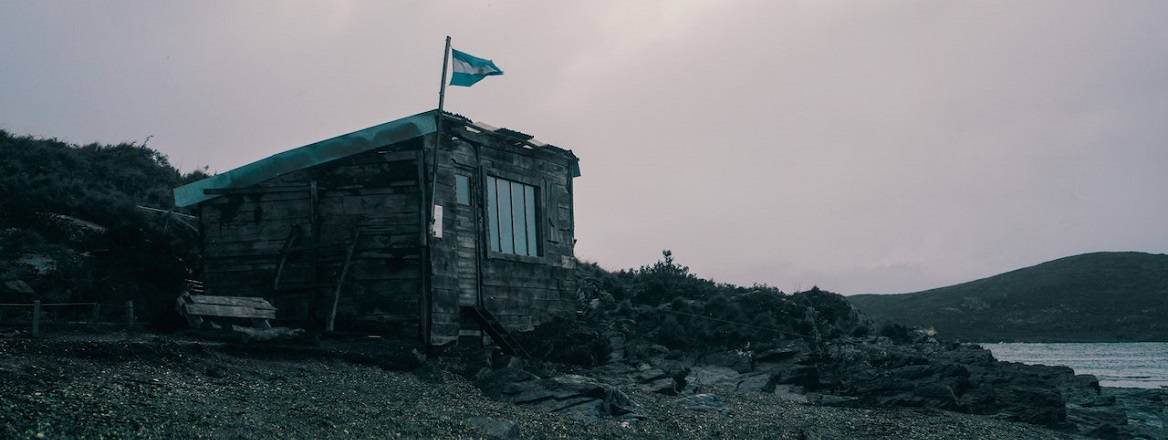Criminal Structures in Argentina: Family clans and the PCC Threat
Due to the fragmentation of drugs markets and the adoption of less centralised criminal structures, transnational organised crime has spread throughout Latin American countries.
In Argentina, organised crime has taken a particular form, different to the archetypical drug cartels that operated in Colombia or Mexico in the 1990s or at the beginning of the century. Access to the European market and a growing internal demand for drugs in Argentina has led to the appearance of family clans and gangs who now represent the structures shaping Argentine criminal organizations.
The Proliferation of Clans in Argentina
These clans start their activities dealing drugs on small scales, subsequently expanding their illegal activities to potentially involve arms trafficking, money laundering, smuggled goods and human trafficking. With roots in smaller-scale criminality, these criminal organisations have correspondingly intimate structures, consisting of close relatives and its main advantages are the high degrees of confidence and loyalty between and among its members. Furthermore, the local roots of family clans mean they form part of their respective communities and are selectively willing to provide the investment and services neglected by the state.
However, local roots and family ties do not preclude high degrees of criminal sophistication, having joined forces with other organisations to pool resources and avoid competition against one another. This is the case in the city of Itatí, in the province of Corrientes, where three separate family clans belong to the same criminal network.
In addition to inter-clan expansion, these groups have co-opted the police forces and local politicians to protect and expand their illegal activities into neighbouring countries like Brazil and Paraguay.
Gangs and clans operating in the northeast region have benefited immensely from illicit activities due to their border position and porous, corrupted law and border enforcement. These groups have engaged in activities like human trafficking, where it is believed that Argentinian organised crime imports a significant number of women from Paraguay and the Dominican Republic, many of whom end up employed in the illicit sex industry. In provinces like Salta, Argentinian gangs facilitated the trafficking of Chinese citizens into the country through the international crossing known as “Aguas Blancas”, then taking them on to Buenos Aires.
Trends in Argentina
Argentinian crime groups’ increasing power, diversification and engagement has led to increasingly violent clan behaviour spreading throughout the country. Drug gang battles, for example, are taking place in the city of Rosario where the “Los Monos” drug gang gained power by controlling the movement of cocaine. The arrest of head members of the clan led to a power struggle, where the ensuing violence saw hitmen on motorcycles used as a method to eliminate rival gang members of the Alvarado Clan. The result of the clans’ struggle for control of drug sales inside Rosario led to the city closing the year with 212 homicides.
The same applies to Buenos Aires, the most populated province in Argentina. The province is home to family clans, large and small, who oversee well organised drug distribution systems for cocaine and marijuana across the province. Though many of their leaders were arrested, they kept operating their illegal activities from behind bars through alliances with corrupt prison officials and members of the security forces.
The clans have also adopted other tactics to avoid detection and repercussions. In Buenos Aires, a considerable number of crimes are committed by minors. Also, in the province of Mendoza, poor kids of 15- to 20-year-olds are being employed as ¨sicarios¨ and dealers, a tactic used by several drug cartels in the region. In both cases, these kids were captured by drug gangs to act as ¨little soldiers¨ in the corridors of the shantytowns to sell ¨paco¨ – a highly addictive street drug made of residual cocaine paste. The clans introduce the paco in poor neighbourhoods distributing it for free to generate the addiction and later using it to recruit soldiers who work as slaves in order to earn their dose.
For the clan members, one of the main advantages is that children under that age are considered not to be criminally responsible. Also, pregnant women with children under 5 years of age are recruited for drug dealing with the promise that, if arrested, they will regain their freedom due to their status as mothers. For jurists, one of the solutions to this problem would be to lower the age of accountability from 16 to 14 years, a proposal that has been widely debated and rejected by civil society.
The Threat of the ¨Primeiro Comando da Capital¨ (PCC)
There are growing concerns about the possible connections between local clans and the “Primer Comando Capital” (PCC), a powerful Brazilian criminal organization which has established a strong presence in Paraguay and Bolivia. The PCC controls the routes and exit points of nearly all cocaine passing from Peru and Bolivia.
The PCC has managed to expand throughout the region successfully with the consistent commitment of its 30,000 members in Brazil and more than 500 in Paraguay. This is a clear sign that the organization is primed to become and remain the most powerful drug trafficking organization in South America. Moreover, intelligence documents revealed details about 30 PCC members entering the northern province of Corrientes, Argentina a couple of years ago, causing alarm among government officials and making a clear attempt to expand boundaries of the PCC’s power.
Analyst and observers have also recently noted clear attempts to penetrate the market in Argentina´s north-eastern province of Misiones. Misiones, Argentina is critical to traffickers and organised crime as it is the main entry point into Argentina for marijuana and cocaine trafficked from Paraguay and Brazil. In fact, the nearby “Hidrovía” passage – which accounts for the majority of foreign Argentine trade – is used for trafficking cocaine to Europe inside containers that are rarely subject to any controls. The “Hidrovía Parana-Paraguay” passage is a 3400 kilometre river route that allows different types of cargo vessels to exit into the ocean without frequent controls.
A recent operation led by Interpol in this tri-border area of Argentina, Brazil, and Paraguay led to the arrest of members of PCC involved in firearms trafficking. Rifle parts coming from the city of Rosario were smuggled through the Formosa city of Clorinda on their way to Pedro Juan Caballero in Paraguay for sale, to suspected PCC members. This is concrete evidence that transnational crime groups such as the PCC have developed ties with members of family clans in Argentina, using them as facilitators for the transport of drugs and firearms.
In short, as transnational criminal organizations are becoming more firmly established in the southern cone nations, the rise of smaller criminal groups and family clans are expected to proliferate in countries like Argentina. The increase in illicit flows and the potential for enormous profit, will continue spur the rapid expansion of drug clans of different sizes – in addition to more powerful global syndicates. These organizations are very difficult to dismantle due to deep rooted corruption and the lack of coordination between local authorities. Therefore, so long as an agreement is not reached among neighbouring countries on active regional cooperation, major criminal groups will move unimpeded over borders, taking advantage of the weaknesses and flaws existing in the Argentinian system.
The views expressed in this article are those of the authors and do not necessarily reflect the views of RUSI or any other institution.
Main Image Credit: Argentinian Flag via Pexels.
WRITTEN BY
Damian Gariglio
SHOC Network Member - Practitioner / Researcher


